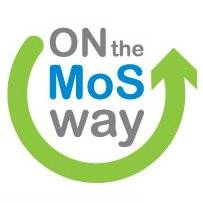The Port of Antwerp Authority and Antwerp blockchain start-up T-Mining have announced a blockchain-based smart contract for managing some aspects of fruit shipping, which was developed together with Belfruco, Enzafruit, PortApp, 1-Stop and T&G Global.

Currently exchanging the paper-based certificates is managed by courier, as the port and T-Mining explain: “The food agency in New Zealand is responsible for issuing the phytosanitary certificate. Subsequently, the New Zealand exporter sends this certificate – together with the fruit – to the Belgian importer. The latter transfers the certificate to the forwarding agent, who in turn has to hand over these certificates to the Belgian authorities so that they can inspect and approve the certificate before releasing the cargo of fruit for import in Belgium”.
This is exactly the type of manual document managing that blockchain can replace. “Now, the New Zealand exporter will transfer this digital certificate to the Belgian importer, Enzafruit. It transfers it to Belfruco, freight forwarder within the SEA-invest group – which in turn has to transfer these certificates to the Belgian authorities before releasing the cargo of fruit from the SEA-invest terminal”.
Digital document management saves time and money, adds Nico De Cauwer, Business Architect Port Community Systems of the Antwerp Port Authority. “With the pilot project, we can transfer these certificates from New Zealand to Belgium much faster and then transfer them to the competent authorities in Antwerp. In this way, everyone immediately has all the latest information and the necessary preparations and checks can be made faster. On top, Blockchain technology guarantees that the authenticity of the certificates has not been tampered with and we can retrieve the origin of the documents in real time. At the moment we are testing this solution on a small scale, with a limited number of parties. We want to test specific blockchain components, but also the new way of working, which is now fully digital. With the results of this pilot we will see which adjustments are needed to consider a possible further rollout.”
Filip Heremans, Chief Product Officer at T-Mining, noted that blockchain also solves the problem of who holds the original documents. “Blockchain technology allows to transfer documents without duplicating them, so there is only one party that owns the original document at any time. On top, the blockchain guarantees the authenticity of the document – as no one can change or delete anything unnoticed – one of the key characteristics of blockchain,” he said.
With blockchain the flow of information between parties is governed by “Smart Contracts” covering access, adding new information, and sharing. “Because blockchain is a back-end technology, we work together with PortApp, which develops the front-end application so end-users can upload, transfer and approve documents via the blockchain,” the companies added.
Erwin Verstraelen, CDIO of the Antwerp Port Authority, said the project confirms Antwerp’s status as a pioneer and leader with blockchain technology in the maritime sector. “In 2017, we were the first port in the world to test blockchain in real-life. Today, we once again illustrate our ambition to be an open innovation hub that introduces new technologies, since innovation and digitization are crucial in the long term. To safeguard the competitiveness of our port, we are investing in pilot projects to better understand the possibilities of new technologies and to learn how to best apply them.”
As noted above the blockchain is also integrated with the 1-Stop Port Community System, which is used at some ports in New Zealand. “Digital connections between international Port communities is crucial for achieving growth and innovation. For this project we work closely with the Port of Antwerp to test a complex and high-tech solution on an international scale,” said Michael Bouari, CEO of 1-Stop Connections.
Source: World Cargo News

